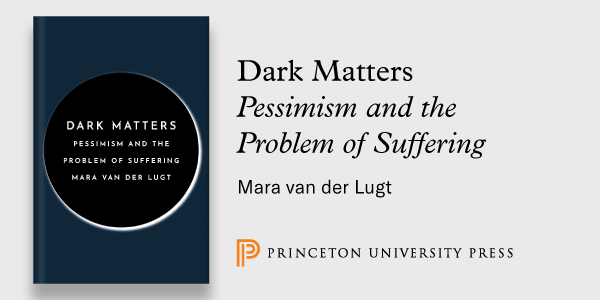Our commitment to diversity and inclusion is also reflected in the topics and methodological approaches covered by articles that we accept – from theoretical and conceptual philosophy, law and policy analysis, to practical ethics and empirical approaches derived from sociology and science and technology studies. Our Associate Editors have expertise covering the central topics of neuroethics, including areas involving feminist, non-Western and cross cultural, sociological, and experimental philosophical approaches.

Developments at Philosophical Psychology and Neuroethics
by Lisa Bortolotti and Katrina Sifferd
Lisa Bortolotti will be supported by four Associate Editors with complementary areas of expertise: Kengo Miyazono (Hokkaido University, Japan); Katherine Puddifoot (Durham University, UK); Anna Ciaunica (University College London, UK and University of Lisbon, Portugal); and Pablo López-Silva (University of Valparaiso, Chile). There will also be two dedicated book review editors: Mary Carman (University of the Witwatersrand, South Africa); and Lauren Saling (RMIT University, Australia). All the members of the renewed editorial board of Philosophical Psychology will be research active in the key areas where the journal receives submissions.
Neurothics is a forum for interdisciplinary studies in neuroethics and related issues in the sciences of the mind. We cover the dual areas of neuroethics: the ethical implications of neuroscientific research, tools, and interventions; and the ways science, including neuroscience, can inform our understanding of ourselves as agents. The former includes new technologies developed via neuroscience, including cerebral organoids and deep brain stimulation, but also psycho-pharmaceuticals and other more “traditional” ways of intervening in the mind, including environmental methods. The latter includes how the sciences of the mind illuminate traditional moral and philosophical problems, such as questions about responsibility, self-control, self-deception, identity, and personhood. Many of these have legal implications. We also publish policy statements by practitioners, scholars, and professional groups.
PHILOSOPHICAL PSYCHOLOGY
Lisa Bortolotti (University of Birmingham, UK) will be the new Editor and she aims to increase the quality of published outputs and provide a faster turn-around for authors, with a first decision being made within three months of submission. She will ensure that all published work is reviewed moving forward: for editorials and book reviews, peer feedback will be sought from editorial board members; for original research papers (whether solicited or unsolicited), at least two independent reviews will be sought by experts in the area.
NEUROETHICS
This guest post* provides some information about recent changes at two interdisciplinary journals, including one from which a previous editor resigned last year following a controversy surrounding a piece published in it. The authors are Lisa Bortolotti, professor of philosophy at the University of Birmingham, and Katrina Sifferd, professor of philosophy at Elmhurst University.
Since Neil Levy retried as Editor-in-Chief, Neuroethics has aimed to have co-editors with one scholar from the field of neuroscience and one from philosophy. The current Editors-in-Chief, Adrian Carter (Monash, Australia) and Katrina Sifferd (Elmhurst, USA) are strongly committed to greater diversity and inclusion. This aim is reflected in our recently appointed Associate Editors, which span a broad range of geographic, cultural, gender, discipline, profession, and stage of academic career. A number of early career researchers now serve on the board. Half of our editorial team are women. Our new Associate Editors are: Anneli Jefferson (Cardiff University, UK), Arleen Salles (Uppsala University, Sweden & Centro de Investigaciones Filosóficas, Argentina), Jan Christoph Bublitz (Universität Hamburg, Germany), Francis Shen (University of Minnesota and Harvard University, USA), Jennifer Chandler (University of Ottawa, Canada), Jonathan Pugh (University of Oxford, UK), Laura Specker Sullivan (Fordham University, USA), Marcello Ienca (EPFL & ETH Zurich, Switzerland), Martyn Pickersgill (University of Edinburgh, UK), Philipp Kellmeyer (University Medical Center Freiburg, Germany), Rosemary Musesengwa (University of Oxford, UK), Tamami Fukushi (Japan Agency for Medical Research and Development & Tokyo Online University, Japan), L. Syd Johnson (Upstate University, USA), and Wesley Buckwalter (George Mason University, USA).
In this post we update you on some exciting developments concerning two philosophy journals publishing interdisciplinary research: Philosophical Psychology (Taylor and Francis) and Neuroethics (Springer). Lisa Bortolotti is going to take up the editorship of Philosophical Psychology from January 2022, and will tell you about the new editorial team and her aspirations for the journal. Katrina Sifferd recently joined Adrian Carter, a neuroscientist, as co-editor of Neuroethics. Katrina will talk about their newly expanded editorial team and their hopes to publish papers on a wider range of topics related to neuroethics.
Based on the idea that good philosophy and good science should reach the well-informed public and make a difference to society, the editorial team will seek opportunities to make the journal’s content attractive to a wider audience and more visible on social media. Special issues will be centred on topics of general interest where existing public debates can be enhanced by the contribution of experts from philosophy, psychology, and related disciplines. Currently, there is a call for papers on COVID-19 Collective Irrationalities with a March 2022 deadline.

Finally, a word about the new Editor’s vision. Lisa Bortolotti aims for the journal policies to be fair and transparent, and to be guided by a commitment to diversity and inclusivity. She signed the Barcelona Principles for a Globally Inclusive Philosophy, which recognise the structural disadvantage of non-native speakers of English in analytic philosophy. The journal will also subscribe to the British Philosophical Association (BPA) and Society for Women in Philosophy (SWIP) Good Practice Scheme, which recommends policies encouraging the representation of women in philosophy. The new core editorial team and the renewed editorial board of the journal include many non-native speakers of English and many women researchers with expertise in philosophy and psychology.
Finally, we will also begin publishing editorials this year on issues currently facing the field, such as equity, justice and publishing ethics, as a way to make the ethical commitments of the journal transparent. Neuroethics will also increase the visibility of our papers and authors through increased outreach via social media (@NeuroethicsJ) and at conferences to foster greater discussion and engagement.
Philosophical Psychology remains committed to hosting a wide range of work at the intersection of philosophy and the psychological sciences but is getting a make-over next year, with a new editorial team, an updated editorial board, and some changes being implemented to the peer-review process. The journal considers for publication original research articles, commentaries on articles previously published in the journal, and book reviews.
With the appointment of our new Associate Editors, we are embracing a more collaborative publishing model. Associate Editors are tasked with handling several papers a year and organizing topic collections within their area of expertise, which will increase the journal’s reach and relevance. Our main aim is to provide a collegial experience for our authors, reviewers, and editors, and strive to provide high quality, courteous and supportive handling of submissions. The current average time to acceptance for manuscripts is 177 days; one of the lowest amongst Springer journals.



